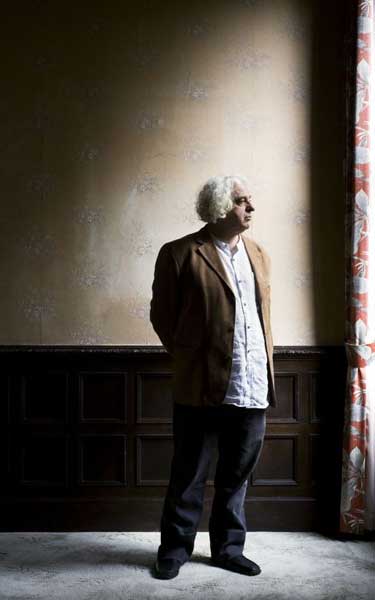First Person: 'I was abandoned at 12. I didn't tell anyone'
David Cohen, 63

Your support helps us to tell the story
From reproductive rights to climate change to Big Tech, The Independent is on the ground when the story is developing. Whether it's investigating the financials of Elon Musk's pro-Trump PAC or producing our latest documentary, 'The A Word', which shines a light on the American women fighting for reproductive rights, we know how important it is to parse out the facts from the messaging.
At such a critical moment in US history, we need reporters on the ground. Your donation allows us to keep sending journalists to speak to both sides of the story.
The Independent is trusted by Americans across the entire political spectrum. And unlike many other quality news outlets, we choose not to lock Americans out of our reporting and analysis with paywalls. We believe quality journalism should be available to everyone, paid for by those who can afford it.
Your support makes all the difference.I was not physically abused; I was not sexually abused. But I was obliged to live in a luxury flat in the West End by myself when I was 12. It's an unusual form, but it is emotional abuse.
It was 1959, and we had only been living in London for four years; I'd grown up mostly in Israel and India. My parents were having financial difficulties, and my father persuaded my mother to go back to Israel to sell a flat there. They hadn't had a good relationship; she knew that my father would want to go off with other women, which he did, leaving me alone in the flat in Seymour Place.
I was quite convinced that if anyone found out I was living by myself, I'd be sent to an orphanage, and I was quite convinced that at an orphanage I'd be beaten black and blue. So I was determined no one would find out, and my school, St Paul's, never did. Intelligent little ragamuffins can learn to be devious.
My entire aim at the start was to survive. But I did have money, so I was in an infinitely better position than 95 per cent of kids who are abandoned.
I saw my father every Friday night, and he gave me two £10 notes. I assumed, wrongly as it turned out, that he would be there in an emergency. One day when I burnt myself, he was off philandering and I had to deal with it alone. I took myself to hospital, but they didn't ask any questions – when they discovered I was a public schoolboy, it became inconceivable that I could have been abandoned.
After three or four months, I saw my mother in Israel. When you are a kid and you adore your mum and you go all the way to Israel and she puts her arms around you and you just feel like a block of ice – I realised I had to dissimulate. You can't tell her you don't love her any more.
Emotionally, I felt abandoned. But the world was still full of that Second World War language, so in my fantasy I was part of the Abandoned Boys' Brigade, full of war spirit and Boy's Own adventures.
There was a sort of conspiracy of silence. My father bribed the porter of the building, I've no doubt. The dry-cleaner would never take any money from me; he knew something was wrong. I went to synagogue one day, and I was absolutely filthy. I realise now it was a cry for help. But the Rabbi just took me to one side and said, "God expects you to be in a clean shirt and properly pressed trousers".
I lied through my back teeth. And I did have lots of duly silly adventures. I used to wander down Queensway, and two or three times blokes picked me up. One took me to the movies, and he sussed there was something odd going on. We went back to his, and well, let's just say there was a stain on the back of my trousers. He decided he had to clean me up, and I didn't quite realise what was going on, but I knew I didn't want him trying to get the stain off with "Dabitoff" cleaning liquid.
I was very lonely. Sometimes I didn't see anyone from Friday afternoon until Monday morning, which is why I got into trouble with those blokes. I got a much older girlfriend – I was obviously looking for a substitute mother. There were advantages to living alone: at 15, I didn't have to ask anyone if she could stay over, because there was no one to ask.
Eventually, my mother came back. She had had a lover in Israel who died; my father had children with another woman. My mother became rather bitter because nothing had worked out in her life. And my father's second wife, who is a very nice woman, said he used to describe himself as a "mediocre man" – he was also disappointed with life.
My parents, who are both dead now, always refused to talk about it. I put it down to them being very ashamed. Denial is a powerful force.
'Home Alone' (JR Books, £16.99) is out now
Join our commenting forum
Join thought-provoking conversations, follow other Independent readers and see their replies
Comments